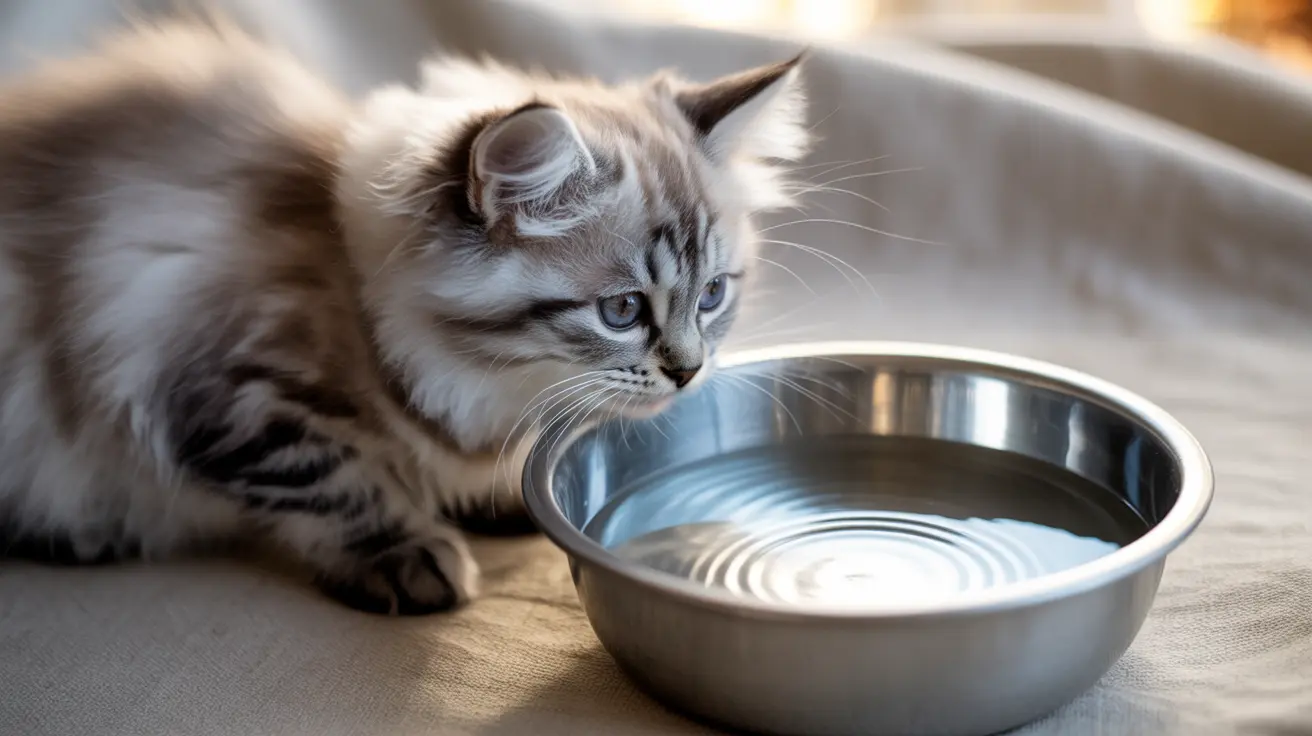Understanding Distilled Water for Cats
As cat owners become increasingly conscious about their pets' health, questions about water quality and safety are common. Distilled water, known for its purity, often comes up as a potential option for feline hydration. But is it actually good for your cat? Let's explore the facts and expert recommendations about giving distilled water to cats.
Distilled water is created through a specific purification process where water is boiled into steam and then condensed back into liquid form. This process removes virtually all impurities, minerals, and contaminants - but it also eliminates beneficial minerals that naturally occur in regular water.
Safety and Benefits of Distilled Water for Cats
The good news is that distilled water is generally safe for cats to drink. Its primary advantage is the complete absence of potentially harmful contaminants like chlorine, fluoride, bacteria, and heavy metals that might be present in tap water. This makes it particularly appealing for cat owners living in areas with questionable water quality.
Some specific benefits of distilled water include:
- Reduced risk of bacterial contamination
- No chemical additives or treatments
- Potential help in preventing certain types of urinary crystals
- Excellent for cleaning and maintaining pet water fountains
Potential Risks and Considerations
While distilled water is safe, veterinary experts generally don't recommend it as your cat's exclusive water source. The lack of natural minerals and electrolytes in distilled water could potentially lead to nutritional imbalances if used long-term. Most cats receive their necessary minerals primarily through their food, but the minerals in water can still play a supportive role in their overall health.
Key considerations when using distilled water include:
- Potential mineral deficiencies with exclusive long-term use
- Some cats may find it less palatable due to the lack of minerals
- Higher cost compared to filtered or tap water
- Possible impact on cats with specific health conditions
Best Practices for Cat Hydration
The most balanced approach is often to use a combination of water sources or to opt for filtered water instead of distilled. If you choose to use distilled water, consider these recommendations:
- Mix distilled water with regular filtered water to maintain some mineral content
- Ensure your cat's diet is nutritionally complete
- Monitor your cat's water intake and behavior
- Consult with your veterinarian about the best water options for your specific cat's needs
Frequently Asked Questions
Is distilled water safe for my cat to drink regularly?
Yes, distilled water is safe for cats to drink, but it's best used as part of a varied water source strategy rather than as the exclusive water source. While it's pure and free from contaminants, it lacks beneficial minerals that contribute to overall health.
What are the benefits of giving my cat distilled water instead of tap water?
Distilled water offers complete freedom from contaminants, chemicals, and harmful bacteria that might be present in tap water. It's particularly beneficial in areas with poor water quality or for cats with specific health concerns that require ultra-pure water.
Can feeding my cat only distilled water cause mineral deficiencies or health problems?
While most cats get their essential minerals from food, exclusive long-term use of distilled water could potentially contribute to mineral deficiencies. It's best to either mix distilled water with other water sources or ensure your cat's diet is rich in necessary minerals.
How does distilled water affect cats with urinary tract or kidney issues?
Distilled water might be beneficial for cats prone to urinary crystals due to its lack of minerals. However, cats with kidney issues should have their water source discussed with a veterinarian, as mineral content can be important for kidney function.
Should I use distilled water in my cat's drinking fountain to prevent mineral buildup?
Yes, using distilled water in pet fountains can help prevent mineral buildup and scaling, extending the life of the fountain and reducing maintenance needs. However, consider alternating with filtered water or ensuring your cat has access to multiple water sources.
Conclusion
While distilled water is safe for cats, it's best used as part of a broader hydration strategy rather than as an exclusive water source. The key is to balance water purity with your cat's nutritional needs, always consulting with your veterinarian about the best options for your specific pet's health requirements.






